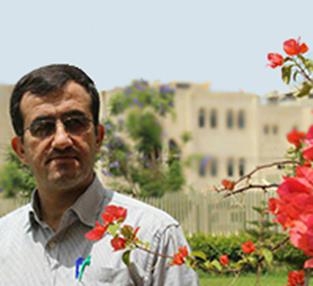Baharieh (on spring)
Selling the Old Is Over
Hamid Ghazvini
Translated by Ruhollah Golmoradi
2019-4-6

- Nowruz is one of the most important connecting rings and one of the most creating identity events for all Iranians, which has a deep link with memory.
One dare say that in civilization area of Iran, there is no one whom Nowruz is not reminded of him sweet memories; from housecleaning and new clothes, nourishment and Eid, visiting up to old rituals.
In childhood, after Eid holiday, for essay credit in school, we should write a few lines about the topic "How did you spend your Nowruz?" And this was a kind of memory-writing.
Interestingly, Nowruz has a distinguished place in memories of political prisoners, holy defense warriors, freed warriors, scientific elites and prominent political and social figures; because Nowruz affects everything. Ms. Tahereh Sajjadi, a Muslim militant during Pahlavi regime who had spent several years in prison, says, "During Eid days, the Joint Committee[1] would be quieter, we heard less yell due to torture, as most interrogators went on vacation. Those who were present also harassed less. Our Eid in the joint committee was that we were allowed to have a meeting. Eid's atmosphere was different in each of Evin, Qasr, and Joint Committee prisons. For example, the Joint Committee had a closed space, but in Evin, It was possible to see a branch of a tree or a bird that promised spring and refreshing. By bread and mouth water, we made small planes and pots. I remember, I created a blossom branch, which revived sense of freshness and spring in my existence. Usually, when they brought children to meeting, I would give them as Eidi the same small planes and like those and drawings that I made in Evin."
2) In the past year, with all its political, economic and cultural ups and downs, promising events took place in field of oral history. Holding workshops and various specialized meetings, initiating and continuing oral history projects and publishing new works, all reflect prosperity of this field and presence of audience and many words to say.
One of the reasons for boom of works related to memory-writing and oral history in recent decades seems to be to increase attention to human dignity in different societies. If oral history leads to democratization of historiography, it must be accepted that this will be realized when it values human regardless of its social status and takes serious its word; oral history, unassuming and in spite of many obstacles, have taken effective steps in this way. Steps that accompanied by participation and welcoming of the citizenry and is an important investment for both sides.
I regard this situation on the brink of spring as a good omen, and I wish everyone a year full of boom and avoiding repetition.
Turn of flea market sellers passed
We are new sellers and this is our market[2]
[1] Anti-sabotage Joint Committee, or Komiteh Moshtarak, was operated by SAVAK under the government of the Shah of Iran against political opponents.
[2] Ghazal 424 in Divan-e Shams.
Number of Visits: 3868








The latest
Most visited
Attack on Halabcheh narrated
With wet saliva, we are having the lunch which that loving Isfahani man gave us from the back of his van when he said goodbye in the city entrance. Adaspolo [lentils with rice] with yoghurt! We were just started having it when the plane dives, we go down and shelter behind the runnel, and a few moments later, when the plane raises up, we also raise our heads, and while eating, we see the high sides ...The Arab People Committee
Another event that happened in Khuzestan Province and I followed up was the Arab People Committee. One day, we were informed that the Arabs had set up a committee special for themselves. At that time, I had less information about the Arab People , but knew well that dividing the people into Arab and non-Arab was a harmful measure.Kak-e Khak
The book “Kak-e Khak” is the narration of Mohammad Reza Ahmadi (Haj Habib), a commander in Kurdistan fronts. It has been published by Sarv-e Sorkh Publications in 500 copies in spring of 1400 (2022) and in 574 pages. Fatemeh Ghanbari has edited the book and the interview was conducted with the cooperation of Hossein Zahmatkesh.Is oral history the words of people who have not been seen?
Some are of the view that oral history is useful because it is the words of people who have not been seen. It is meant by people who have not been seen, those who have not had any title or position. If we look at oral history from this point of view, it will be objected why the oral memories of famous people such as revolutionary leaders or war commanders are compiled.

